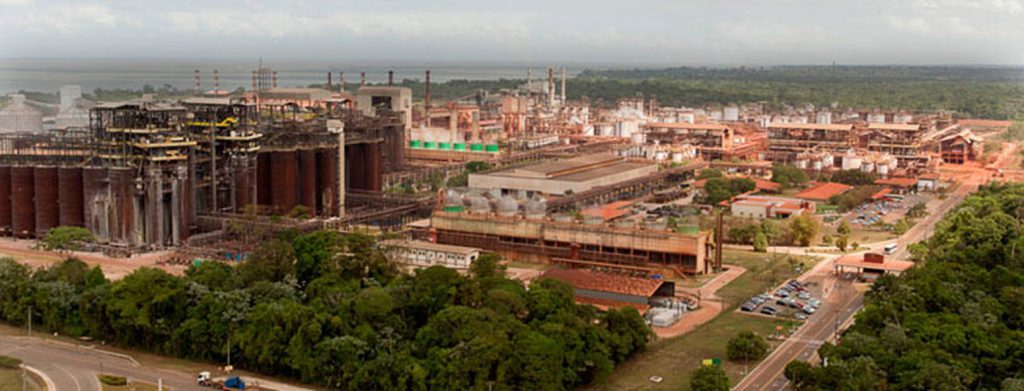Hydro shutdown pushes up shares of South 32, Alumina Ltd

MELBOURNE, Oct 4 (Reuters) – Shares in Asia’s alumina makers rose on Thursday after Norsk Hydro said it would shut production at the world’s biggest alumina plant, with South 32 and Alumina Ltd posting steep gains.
Hydro plans to halt production and lay off 4,700 people at Brazil’s Alunorte, which produces the aluminium raw material and has been operating at half capacity since March due to an environmental dispute.
Alunorte accounts for around 10 percent of global production of the white powder outside China.
London Metal Exchange (LME) aluminium prices rallied 5 percent over Wednesday and Thursday.
Alunorte accounts for around 10 percent of global production of the white powder outside China.
UBS said that a $10 rise in the alumina price would equate to a 4.6 rise in earnings per share for Alumina Ltd and a 2.2 percent increase for South 32.
Shares in Alumina rose as much as 11 percent on Thursday, South 32 gained as much as 7.3 percent to hit a record high of $A4.25. Australian bauxite miner Metro Mining rallied 5 percent.
In U.S. trading, Alcoa shares jumped 9.3 pct to post their biggest pct gain since April 2017, while Century Aluminum , which buys in alumina to produce aluminum, fell as much as 17.2 pct to its lowest since January 2017.
Global miner Rio Tinto would also be adversely affected by the announcement, UBS said.
“The outage means Rio Tinto is short alumina and will need to purchase in the spot market, which has negative impact on earnings,” the broker added.
Rio Tinto’s London shares rose 0.7 percent on Wednesday, while its Australian shares added 0.3 percent in morning trade, below a 1.1 percent rise in S&P/ASX 200 Resources index.
Rio Tinto said in its most recent earnings report that the group is broadly balanced in alumina, but is exposed to long-term legacy alumina sales contracts.
“The significant escalation in the alumina index price during 2018 first half, as a result of industry supply disruptions … considerably increased the financial impact of these legacy contracts,” it said.
Rio Tinto did not immediately respond to request for comment.
(Reporting by Melanie Burton; Editing by Richard Pullin)
{{ commodity.name }}
{{ post.title }}
{{ post.date }}




Comments